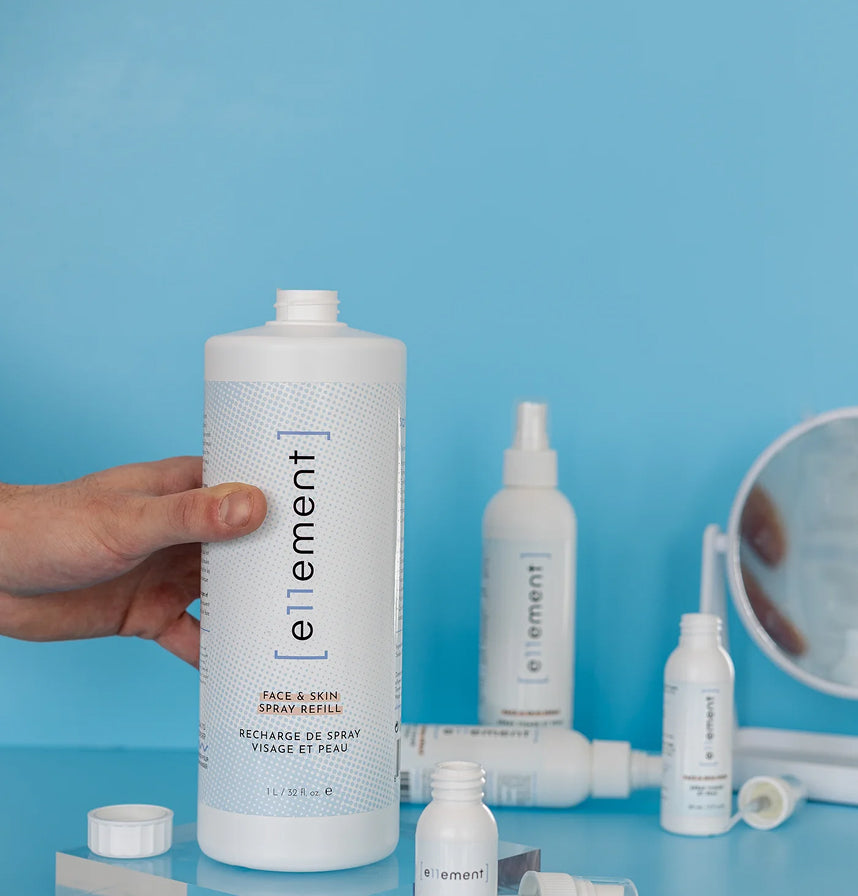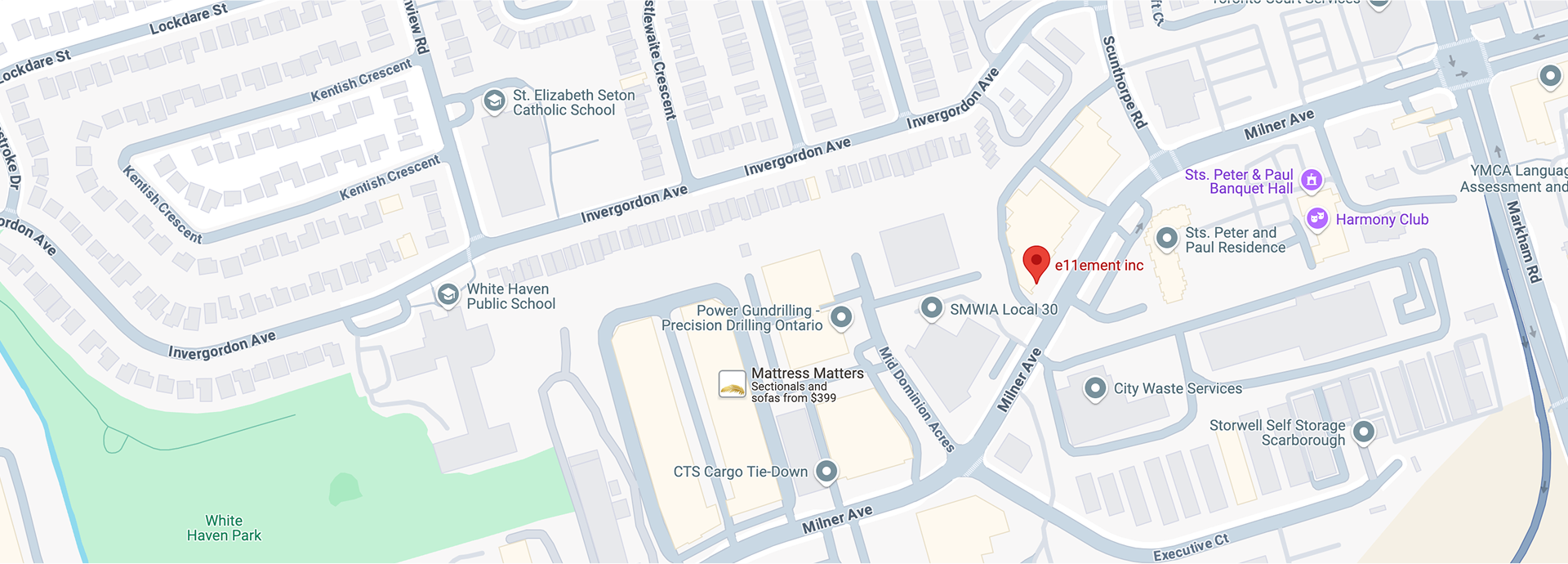Scarring is a natural part of the body’s healing process. Whether from surgery, acne, or minor injuries, scars can leave permanent marks on the skin, impacting one's appearance and confidence. Traditional scar treatments include creams, gels, and silicone sheets, but a newer solution is gaining attention: hypochlorous acid (HOCl).
What Is Hypochlorous Acid?
Hypochlorous acid (HOCl) is a naturally occurring compound produced by the body’s immune system to fight infection and promote healing. It has strong antibacterial and anti-inflammatory properties, making it effective in treating wounds, reducing infection risk, and aiding in skin recovery.

Now available in topical solutions like Hypochlorous Acid Spray, this compound is increasingly being explored for its potential to assist in scar reduction and skin healing. But how exactly does hypochlorous acid help with scars?
How Does Hypochlorous Acid Help with Scars?
To understand how hypochlorous acid can contribute to scar healing, it's essential to break down the key ways in which it benefits the skin:
1. Antimicrobial Properties
Wounds and injuries that lead to scarring are often prone to infections. Hypochlorous acid acts as a potent antimicrobial agent that kills bacteria, viruses, and fungi on the skin’s surface. Keeping the wound clean and free from infection is crucial for healthy scar formation.
By preventing infections, hypochlorous acid allows the body to focus on healing the skin, leading to less visible scarring over time.
2. Anti-Inflammatory Effects
Inflammation is a natural response to skin injury, but prolonged or excessive inflammation can worsen scarring. Hypochlorous acid has anti-inflammatory properties that help soothe the skin, reduce swelling, and promote a calm environment for healing.
By reducing inflammation in the affected area, hypochlorous acid can minimize the severity of scar formation and promote faster healing.
3. Encouraging Collagen Production
Collagen is a protein that plays a vital role in wound healing and tissue repair. When skin is injured, collagen helps form new tissues that repair the damage. Hypochlorous acid supports the body's natural collagen production, which is essential for proper scar formation.
Balanced collagen production can lead to smoother, less noticeable scars.
4. Hydration and Skin Barrier Support
Hypochlorous acid is known for its hydrating properties. A well-hydrated skin barrier is crucial for healing as it retains moisture, prevents dryness, and supports the regeneration of new skin cells.
Hydration is often an overlooked factor in scar treatment, but maintaining moisture levels with hypochlorous acid spray helps the skin heal more effectively, resulting in softer and less pronounced scars.
Using Hypochlorous Acid Spray for Scar Treatment
Now that we've explored how hypochlorous acid helps with scars, let's look at how you can incorporate hypochlorous acid spray into your scar treatment routine.
1. Application on Fresh Wounds
For best results, hypochlorous acid spray should be applied to fresh wounds or skin injuries. Keeping the wound clean and free from infection early on can lead to a more favorable scar outcome. Spray the affected area regularly as directed by the product instructions or your healthcare provider.
2. Post-Surgical Scar Care
After surgery, scars can be more pronounced due to deeper skin damage. Using hypochlorous acid spray can keep the surgical site clean, reduce inflammation, and support faster healing, leading to a more aesthetically pleasing scar.
3. Acne Scarring
Acne can leave behind persistent scars that are difficult to fade. Hypochlorous acid spray can be used on acne-prone skin to reduce the risk of infection and inflammation, both of which contribute to scar formation. Consistent use can also aid in lightening existing acne scars.
Is Hypochlorous Acid Safe for Daily Use?
One of the major benefits of hypochlorous acid spray is its safety profile. Unlike some scar treatments that can irritate sensitive skin, hypochlorous acid is gentle and non-toxic. It’s well-tolerated by most skin types and can be used daily without adverse effects.
Because it mimics the body’s natural defense system, hypochlorous acid doesn’t pose the risk of resistance that some antimicrobial agents do, making it a long-term solution for both preventing and treating scars.
Additional Benefits of Hypochlorous Acid for Skin Health
While the focus of this article is on hypochlorous acid’s ability to help with scars, it’s worth noting that it offers other skin benefits as well:
- Wound Healing: Hypochlorous acid can accelerate wound healing by promoting faster skin regeneration and minimizing infection risks.
- Anti-Aging: Its ability to boost collagen production and support skin hydration can also make it a valuable addition to an anti-aging skincare routine.
- Treating Irritations: Hypochlorous acid can soothe and treat various skin irritations, from burns and rashes to insect bites and sunburn.
These broader benefits highlight the versatility of hypochlorous acid as a skincare solution.
The Future of Scar Treatment: Why Hypochlorous Acid Stands Out
Scar treatment has traditionally been a long and challenging process, involving multiple products and techniques to reduce visibility. While some treatments work for specific types of scars, hypochlorous acid stands out due to its multi-faceted approach to skin healing.
It not only helps reduce the risk of infection and inflammation but also supports the body’s natural healing mechanisms. This holistic approach makes it a promising option for people looking to reduce scars and improve overall skin health.
Conclusion:
So, does hypochlorous acid help with scars? Based on its antimicrobial, anti-inflammatory, and collagen-boosting properties, the answer is yes. Hypochlorous acid spray offers a gentle and effective way to support the skin’s natural healing process, reducing the appearance of scars while promoting overall skin health.
Whether you're dealing with post-surgical scars, acne scars, or minor skin injuries, incorporating hypochlorous acid into your skincare routine can make a noticeable difference. Its safety, versatility, and ability to enhance healing make it a valuable tool in the fight against scarring.























